安部首相のパールハーバーの演説での、
『...The brave respect the brave...
「勇者は、勇者を敬う 」("The brave Respect the dead"...と続き、...I, loving you at last, shall trace Upon your tomb this epitaph:
'Draw near, ye generous and brave -
Kneel round this monument and weep
For one who tried in vain to keep
A flower from a soldier's grave.'と閉じられる)アンブローズ・ビアスの、詩は言います。』・・・という『アンブローズ・ビアス』の英語詩の引用が琴線に触れた。
・・・戦い合った敵であっても、敬意を表する。憎しみ合った敵であっても、理解しようとする。そこにあるのは、アメリカ国民の、寛容の心です。・・・
おそらく、ビアス自身の戦争体験(南北戦争の従軍歴)や、さらにはアメリカを代表する詩人であり批評家でもあるからなのであろう。
Ambrose Bierce recalls his experience at the battle of Shiloh, 1881(known as the Battle of Pittsburg Landing)
Civil War soldiers described the experience of combat as both terrifying and confusing. The American writer, Ambrose Bierce, captures both the confusion and terror of the Battle of Shiloh in the below excerpt of his 1881 recollections of the battle.
Before us ran the turbulent river, vexed with plunging shells and obscured in spots by blue sheets of low-lying smoke. The two little steamers were doing their duty well. They came over to us empty and went back crowded, sitting very low in the water, apparently on the point of capsizing. The farther edge of the water could not be seen; the boats came out of the obscurity, took on their passengers and vanished in the darkness. But on the heights above, the battle was burning brightly enough; a thousand lights kindled and expired in every second of time. There were broad flushings in the sky, against which the branches of the trees showed black. Sudden flames burst out here and there, singly and in dozens. Fleeting streaks of fire crossed over to us by way of welcome. These expired in blinding flashes and fierce little rolls of smoke, attended with the peculiar metallic ring of bursting shells, and followed by the musical humming of the fragments as they struck into the ground on every side, making us wince, but doing little harm. The air was full of noises. To the right and the left the musketry rattled smartly and petulantly; directly in front it sighed and growled. To the experienced ear this meant that the death-line was an arc of which the river was the chord. There were deep, shaking explosions and smart shocks; the whisper of stray bullets and the hurtle of conical shells; the rush of round shot. There were faint, desultory cheers, such as announce a momentary or partial triumph. Occasionally, against the glare behind the trees, could be seen moving black figures, singularly distinct but apparently no longer than a thumb. They seemed to me ludicrously like the figures of demons in old allegorical prints of hell….
The night was now black-dark; as is usual after a battle, it had begun to rain. Still we moved; we were being put into position by somebody. Inch by inch we crept along, treading on one another’s heels by way of keeping together. Commands were passed along the line in whispers; more commonly none were given. When the men had pressed so closely together that they could advance no farther they stood stock-still, sheltering the locks of their rifles with their ponchos. In this position many fell asleep. When those in front suddenly stepped away those in the rear, roused by the tramping, hastened after with such zeal that the line was soon choked again. Evidently the head of the division was being piloted at a snail’s pace by some one who did not feel sure of his ground. Very often we struck our feet against the dead; more frequently against those who still had spirit enough to resent it with a moan. These were lifted carefully to one side and abandoned. Some had sense enough to ask in their weak way for water. Absurd! Their clothes were soaked, their hair dank; their white faces, dimly discernible, were clammy and cold. Besides, none of us had any water. There was plenty coming, though, for before midnight a thunderstorm broke upon us with great violence. The rain, which had for hours been a dull drizzle, fell with a copiousness that stifled us; we moved in running water up to our ankles….
In a few moments we had passed out of the singular oasis that had so marvelously escaped the desolation of battle, and now the evidences of the previous day’s struggle were present in profusion. The ground was tolerably level here, the forest less dense, mostly clear of undergrowth, and occasionally opening out into small natural meadows. Here and there were small pools–mere discs of rainwater with a tinge of blood. Riven and torn with cannon-shot, the trunks of the trees protruded bunches of splinters like hands, the fingers above the wound interlacing with those below. Large branches had been lopped, and hung their green heads to the ground, or swung critically in their netting of vines, as in a hammock. Many had been cut clean off and their masses of foliage seriously impeded the progress of the troops. The bark of these trees, from the root upward to a height of ten or twenty feet, was so thickly pierced with bullets and grape that one could not have laid a hand on it without covering several punctures. None had escaped. How the human body survives a storm like this must be explained by the fact that it is exposed to it but a few moments at a time, whereas these grand old trees had had no one to take their places, from the rising to the going down of the sun. Angular bits of iron, concavo-convex, sticking in the sides of muddy depressions, showed where shells had exploded in their furrows. Knapsacks, canteens, haversacks distended with soaken and swollen biscuits, gaping to disgorge, blankets beaten into the soil by the rain, rifles with bent barrels or splintered stocks, waist-belts, hats and the omnipresent sardine-box–all the wretched debris of the battle still littered the spongy earth as far as one could see, in every direction. Dead horses were everywhere; a few disabled caissons, or limbers, reclining on one elbow, as it were; ammunition wagons standing disconsolate behind four or six sprawling mules. Men? There were men enough; all dead apparently, except one, who lay near where I had halted my platoon to await the slower movement of the line–a Federal sergeant, variously hurt, who had been a fine giant in his time. He lay face upward, taking in his breath in convulsive, rattling snorts, and blowing it out in sputters of froth which crawled creamily down his cheeks, piling itself alongside his neck and ears. A bullet had clipped a groove in his skull, above the temple; from this the brain protruded in bosses, dropping off in flakes and strings. I had not previously known one could get on, even in this unsatisfactory fashion, with so little brain. One of my men whom I knew for a womanish fellow, asked if he should put his bayonet through him. Inexpressibly shocked by the cold-blooded proposal, I told him I thought not; it was unusual, and too many were looking.
Ambrose Bierce, “What I Saw of Shiloh,” The Ambrose Bierce Project. Craig E. Warren, ed. Penn State University,
http://www.americanyawp.com/reader/the-civil-war/ambrose-bierce-recalls-his-experience-at-the-battle-of-shiloh-1881/
ビアスの詩(To E.S. Salomon)の始まりはWho in a Memorial Day oration protested bitterly against decorating the graves of Confederate deadとある。この部分を読み込まないとラスト・スタンザは意味不明になる。
'Draw near, ye generous and brave -
Kneel round this monument and weep
For one who tried in vain to keep
A flower from a soldier's grave.
汝、寛大で勇敢なる者、歩み寄り、この碑(いしずえ)に跪け、そして戦士の墓に花を飾らせないとしたが無駄であった人の為に泣きなさい。
***Edward Selig Salomon (December 25, 1836 – July 18, 1913) was a German Jew who immigrated to the United States and served as an Union brigadier general in the American Civil War and later became governor of Washington Territory and a California legislator.
https://en.m.wikipedia.org/wiki/Edward_S._Salomon
こうした最終スタンザの解釈は難解だか、心を打つ。
引用の由来の英語詩の元になる『引用された詩』の全文を以下に載せます。
To ***E.S. Salomon
Who in a Memorial Day oration protested bitterly against decorating the graves of Confederate dead
by Ambrose Bierce (1842-1914)
What! Salomon! such words from you,
Who call yourself a soldier? Well,
The Southern brother where he fell
Slept all your base oration through.
Alike to him - he cannot know
Your praise or blame: as little harm
Your tongue can do him as your arm
A quarter-century ago.
The brave respect the brave.
The brave Respect the dead; but you - you draw That ancient blade, *the ass's jaw,
And shake it o'er a hero's grave.
Are you not he who makes to-day
A merchandise of old reknown
Which he persuades this easy town
He won in battle far away?
Nay, those the fallen who revile
Have ne'er before the living stood
And stoutly made their battle good
And greeted danger with a smile.
What if the dead whom still you hate
Were wrong? Are you so surely right?
We know the issues of the fight -
The sword is but an advocate.
Men live and die, and other men
Arise with knowledges diverse:
What seemed a blessing seems a curse,
And Now is still at odds with Then.
The years go on, the old comes back
To mock the new - beneath the sun
Is nothing new; ideas run
Recurrent in an endless track.
What most we censure, men as wise
Have reverently practiced; nor
Will future wisdom fail to war
On principles we dearly prize.
We do not know - we can but deem,
And he is loyalest and best
Who takes the light full on his breast
And follows it throughout the dream.
The broken light, the shadows wide -
Behold the battle-field displayed!
God save the vanquished from the blade,
The victor from the victor's pride.
If, Salomon, the blessed dew
That falls upon the Blue and Gray
Is powerless to wash away
The sin of differing from you,
Remember how the flood of years
Has rolled across the erring slain;
Remember, too, the cleansing rain
Of widows' and of orphans' tears.
The dead are dead - let that atone:
And though with equal hand we strew
The blooms on saint and sinner too,
Yet God will know to choose his own.
The wretch, whate'er his life and lot,
Who does not love the harmless dead
With all his heart and all his head -
May God forgive him, I shall not.
When, Salomon, you come to quaff
The Darker Cup with meeker face,
I, loving you at last, shall trace
Upon your tomb this epitaph:
'Draw near, ye generous and brave -
Kneel round this monument and weep
For one who tried in vain to keep
A flower from a soldier's grave.'
『ハムレット』(シェイクスピア)第5幕 イギリスへの旅から帰国したハムレットが墓場を通りかかると、墓堀り人夫たちが頭蓋骨を掘り出している。ハムレットは、カインが人類最初の人殺しに使ったのは、*ろばのあご骨だった」と、友人ホレイショーに語っている。
〔*『創世記』第4章では、カインのアベル殺しを述べるているが、その凶器についての記述はない。
カインのアベル殺しは、絵画においても、サムソンのように、凶器として『*the ass's jaw=ろばのあご骨』を振りかざすカインが描かれている。
『アメリカ』がある意味で、『サムソン』として、こうした歴史的な和解の儀式によって、こうした日米友好によって、今後20年間は安泰になるだろうか?
それとも移り気な『デリラ』や『**ペリシテ人たち』が髪を乱すのであろうか?
**ペリシテ人は「芸術や文学などに関心のない無趣味な人」の比喩に使用されるほど、ヨーロッパ諸語では、侮蔑的なイメージが浸透しているそうだ。
安部首相のパールハーバーの演説での引用"The brave respect the brave.「勇者は、勇者を敬う(勇者は、死者も敬う)」アンブローズ・ビアスの、詩は言います。"
前後の文脈と英語詩や聖書などとの関連やイメージも考えてみましょう。
・・・前略
昨日、私は、カネオヘの海兵隊基地に、一人の日本帝国海軍士官の碑(いしずえ)を訪れました。
その人物とは、真珠湾攻撃中に被弾し、母艦に帰るのをあきらめ、引き返し、戦死した、戦闘機パイロット、飯田房太中佐です。
彼の墜落地点に碑を建てたのは、日本人ではありません。攻撃を受けた側にいた、米軍の人々です。死者の、勇気を称え、石碑を建ててくれた。
碑には、祖国のため命を捧げた軍人への敬意を込め、「日本帝国海軍大尉(だいい)」と、当時の階級を刻んであります。
The brave respect the brave.
「勇者は、勇者を敬う 」
アンブローズ・ビアスの、詩は言います。
戦い合った敵であっても、敬意を表する。憎しみ合った敵であっても、理解しようとする。
そこにあるのは、アメリカ国民の、寛容の心です。
戦争が終わり、日本が、見渡す限りの焼け野原、貧しさのどん底の中で苦しんでいた時、食べるもの、着るものを惜しみなく送ってくれたのは、米国であり、アメリカ国民でありました。・・・後略
古代ギリシャに遡り、ビアス同じく従軍歴のある歴史家
トゥキュディデスは『戦史(ペロポネソス戦史)は次のように述べている。
Make them your examples, and, esteeming courage to be freedom and freedom to be happiness, do not weigh too nicely the perils of war.
「われわれの論旨をもってすれば、古事を歌った詩人らの修飾と誇張にみちた言葉にたいした信憑性をみとめることはできない。また伝承作者のように、あまりに古きにさかのぼるために論証もできない事件や、おうおうにして信ずべきよすがもない、たんなる神話的主題をつづった、真実探究というよりも聴衆の興味本位の作文に甘んじることも許されない。しかしそのいずれをも排し、もっとも明白な事実のみを手掛りとして、おぼろな古事とはいえ充分史実に近い輪郭を究明した結果は、当然みとめられてよい。」 ・・・
中略
・・・「おうおうにして人間は、自分がその渦中にあっていま戦いつつある戦争こそ前代未聞の大事件であると誤信する。そして戦争が終わり、直接の印象が遠のくと、古い事績にたいする驚嘆をふたたびあらたにするものである。しかし印象ではなく結果的な事実のみを考察する人々には、今次大戦の規模がまさに史上に前例のない大きいものであったことがおのずと判明するだろう。」
ペロポネソス戦争には、トゥキュディデス自身も参加している。演説では、『戦没者葬送演説』に際し、ペリクレスによる演説が最も名高い。
われらの政体は他国の制度を追従するものではない。ひとの理想を追うのではなく、ひとをしてわが範を習わしめるものである。その名は、少数者の独占を排し多数者の公平を守ることを旨として、民主政治と呼ばれる。わが国においては、個人間に紛争が生ずれば、法律の定めによってすべての人に平等な発言が認められる。だが一個人が才能の秀でていることが世にわかれば、無差別なる平等の理を排し世人の認めるその人の能力に応じて、公けの高い地位を授けられる。またたとえ貧窮に身を起そうとも、ポリスに益をなす力をもつ人ならば、貧しさゆえに道をとざされることはない。われらはあくまでも自由に公けにつくす道をもち、また日々互いに猜疑の眼を恐れることなく自由な生活を享受している。よし隣人が己れの楽しみを求めても、これを怒ったり、あるいは実害なしとはいえ不快を催すような冷視を浴せることはない。私の生活においてわれらは互いに制肘を加えることはしない、だが事公けに関するときは、法を犯す振舞いを深く恥じおそれる。時の政治をあずかる者に従い、法を敬い、とくに、侵された者を救う掟と、万人に廉恥の心を呼びさます不文の掟とを、厚く尊ぶことを忘れない。
ペリクレスの戦没者葬送演説https://kotobank.jp/word/%E3%83%9A%E3%83%AA%E3%82%AF%E3%83%AC%E3%82%B9%E3%81%AE%E6%88%A6%E6%B2%A1%E8%80%85%E8%91%AC%E9%80%81%E6%BC%94%E8%AA%AC(%E6%8A%84)-1614572
For the whole earth is the tomb of famous men; not only are they commemorated by columns and inscriptions in their own country, but in foreign lands there dwells also an unwritten memorial of them, graven not on stone but in the hearts of men. Make them your examples, and, esteeming courage to be freedom and freedom to be happiness, do not weigh too nicely the perils of war."
[Funeral Oration of Pericles]
Thucydides, History of the Peloponnesian War
I love the man that can smile in trouble, that can gather strength from distress, and grow brave by reflection. 「私は困難の中で微笑むことのできる人を愛する。その人は、悲しみから力を集めることができ、非難によって、さらに勇気が増すのだ。」(トーマス・ペイン)
'Tis the business of little minds to shrink, but he whose heart is firm, and whose conscience approves his conduct, will pursue his principles unto death.
高橋哲哉氏の著書で、ギリシア(アテナイ)のペロポネソス戦争後のペリクレスによる戦死者葬送演説を引きながら、「国家が「国のために」死んだ戦死者を「追悼」しようとするとき、その国家が軍事力をもち、戦争や武力行使の可能性を予想する国家である限り、そこにはつねに「尊い犠牲」、「感謝と敬意」のレトリックが作動し、「追悼」は「顕彰」になっていかざるをえないのである」と述べている。これを踏まえて、安部首相の演説の一部を読み返すとどう感じるだろうか?
彼の墜落地点に碑を建てたのは、日本人ではありません。攻撃を受けた側にいた、米軍の人々です。死者の、勇気を称え、石碑を建ててくれた。
碑には、祖国のため命を捧げた軍人への敬意を込め、「日本帝国海軍大尉(だいい)」と、当時の階級を刻んであります。
The brave respect the brave.
「勇者は、勇者を敬う 」
アンブローズ・ビアスの、詩は言います。
戦い合った敵であっても、敬意を表する。憎しみ合った敵であっても、理解しようとする。
そこにあるのは、アメリカ国民の、寛容の心です。
戦争が終わり、日本が、見渡す限りの焼け野原、貧しさのどん底の中で苦しんでいた時、食べるもの、着るものを惜しみなく送ってくれたのは、米国であり、アメリカ国民でありました。・・・










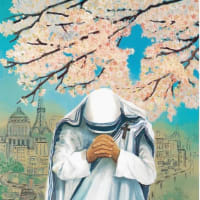
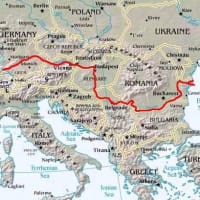
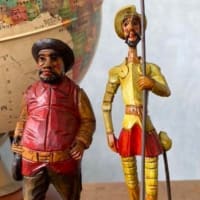
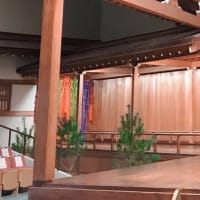
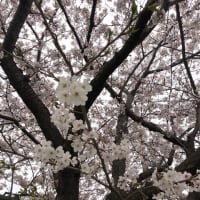
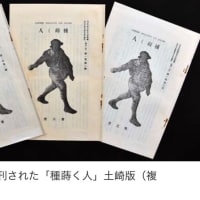

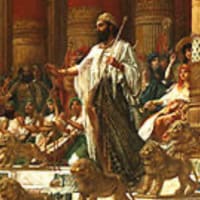
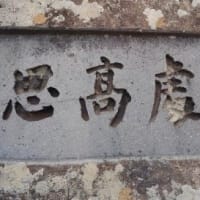
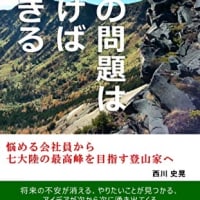
※コメント投稿者のブログIDはブログ作成者のみに通知されます